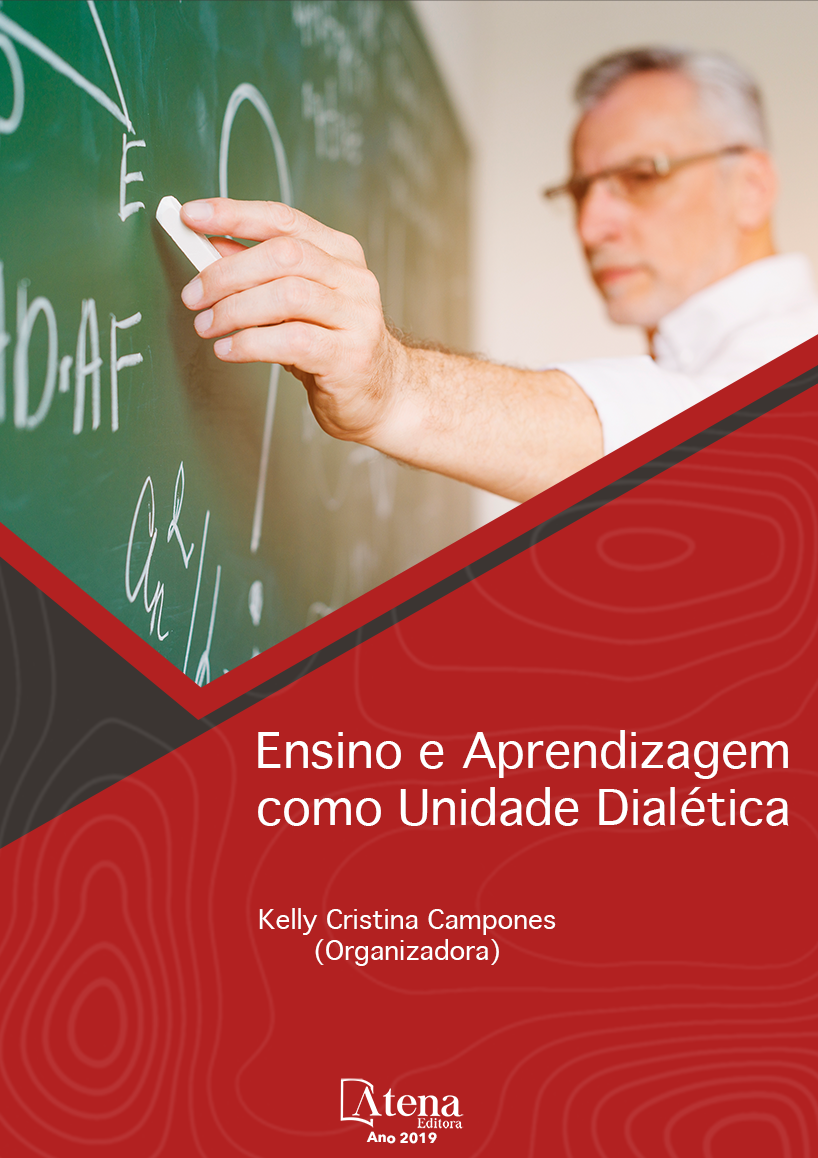
PRÁTICA PEDAGÓGICA: EDUCANDO DE FORMA LUDICA POR MEIO DE ALIMENTOS NA COMUNIDADE QUILOMBOLA
No nível do ambiente escolar
propriamente dito, existe um conjunto de
ações que se propõe sejam desenvolvidas,
tais como educação em saúde, educação
alimentar e nutricional, oferta de alimentação
escolar saudável culturalmente significativa
e de qualidade, processo educativo orientado
por temas e conteúdos em sintonia com o
convívio escolar cotidiano, entre outras. Neste
aspecto, é consensual que a escola representa
um cenário privilegiado para refletir acerca
deste tema e edificar possibilidades coletivas
a problemas que são comuns. Por exemplo,
a diversidade cultural e o apelo ao consumo
alimentar em uma sociedade pautada
pelo consumo, a alimentação se torna uma
mercadoria tal como qualquer outra. O objetivo
deste é contribuir cientificamente e desenvolver
um olhar crítico para realizar uma alimentação
escolar para quilombolas de qualidade que
atenda os discentes das instituições de ensino
e chamar atenção para as autoridades públicas
responsáveis pela merenda escolar, visando
aliar-se ao desenvolvimento do discente e
ao processo ensino aprendizagem daqueles
que estudam nas instituições de ensino. A
metodologia trata de pesquisa qualitativa
sendo pesquisa-ação e aplicada de forma
prática lúdica fixar em pirâmide dividida em três
frações com cores variadas assemelhando-se
a semáforo, contendo as cores verde podendo
comer à vontade, amarelo comer com atenção
e vermelho evitar ao máximo. A população de
amostra foram 100 alunos com idade infantil,
sendo de Unidade Municipal Ensino Infantil
do turno matutino e vespertino, devidamente
matriculados no ano de 2018 na instituição
de ensino municipal, estes residenciados em
vários bairros diversos situados no município
de Presidente Kennedy, E.S. Conseguiu-se
verificar a importância direta e indireta de
estímulos de forma lúdica para melhorar o aprendizado, melhorar hábitos alimentares
e conhecer novos alimentos, enfatizando que os pesquisados relatavam que em sua
residência comiam determinados alimentos e que outros alunos não comiam, dessa
forma observou-se que as crianças visualizando e falando o que várias outras crianças
comiam se adaptam a novos hábitos alimentares melhorando assim a aceitação de
novos alimentos e novas preparações melhorando seu desenvolvimento escolar
possuindo melhor resposta ao processo ensino aprendizagem.
PRÁTICA PEDAGÓGICA: EDUCANDO DE FORMA LUDICA POR MEIO DE ALIMENTOS NA COMUNIDADE QUILOMBOLA
-
DOI: 10.22533/at.ed.81819150737
-
Palavras-chave: Educar. Alimento. Processo ensino aprendizagem
-
Keywords: To educate. Food. Teaching learning process
-
Abstract:
At the level of the school environment itself, there is a set of actions that
are proposed to be developed, such as health education, food and nutritional education,
provision of culturally significant and quality healthy school meals, educational process
guided by themes and content in tune with everyday school life, among others. In this
aspect, it is agreed that the school represents a privileged scenario to reflect on this
theme and build collective possibilities to problems that are common. For example,
cultural diversity and the appeal to food consumption in a society ruled by consumption,
food becomes a commodity just like any other. The purpose of this is to contribute
scientifically and develop a critical view to carry out a school feeding for quality
quilombolas that attend the students of the educational institutions and call attention
to the public authorities responsible for the school lunch, aiming at allying itself to the
development of the student and the learning process of those who study in educational
institutions. The methodology deals with qualitative research being applied research
and applied in a practical playful way fix in a pyramid divided into three fractions with
varying colors resembling the semaphore, containing the green colors can eat at will,
yellow eat with attention and red avoid to the maximum. The sample population was 100
students with children age, being of Municipal Infant Teaching Unit of the morning and
afternoon shift, duly enrolled in 2018 in the municipal teaching institution, these resided
in several different neighborhoods located in the municipality of Presidente Kennedy,
E.S. It was possible to verify the direct and indirect importance of stimuli in a playful
way to improve learning, to improve eating habits and to know new foods, emphasizing
that the respondents reported that in their residence they ate certain foods and that
other students did not eat, it was observed that children visualizing and speaking what
several other children ate adapts to new eating habits, thus improving the acceptance
of new foods and new preparations, improving their school development with a better
response to the learning process.
-
Número de páginas: 15
- Cristiano de Assis Silva


